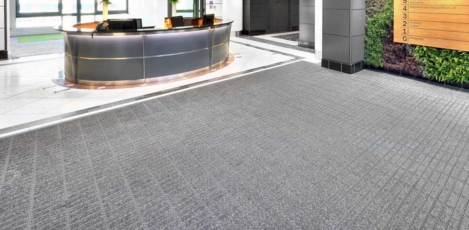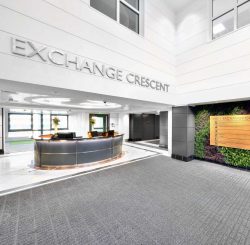To provide the best experiences, we use technologies like cookies to store and/or access device information. Consenting to these technologies will allow us to process data such as browsing behaviour or unique IDs on this site. Not consenting or withdrawing consent, may adversely affect certain features and functions.
The technical storage or access is strictly necessary for the legitimate purpose of enabling the use of a specific service explicitly requested by the subscriber or user, or for the sole purpose of carrying out the transmission of a communication over an electronic communications network.
The technical storage or access is necessary for the legitimate purpose of storing preferences that are not requested by the subscriber or user.
The technical storage or access that is used exclusively for statistical purposes.
The technical storage or access that is used exclusively for anonymous statistical purposes. Without a subpoena, voluntary compliance on the part of your Internet Service Provider, or additional records from a third party, information stored or retrieved for this purpose alone cannot usually be used to identify you.
The technical storage or access is required to create user profiles to send advertising, or to track the user on a website or across several websites for similar marketing purposes.
 The Aviva Stadium in Dublin hosted from 13th to 14th June the 27th Edition of EFMC, the European Facility Management Conference. The event, held for the first time in the Irish capital, has brought together international experts of the FM sector and has served as a platform of communication amongst facilities managers, suppliers, Universities and associations. The event culminated with tours of One Microsoft Place and the offices of Google in the Irish capital. In the closing ceremony it was announced that EFMC 2020 will be held in Barcelona. (more…)
The Aviva Stadium in Dublin hosted from 13th to 14th June the 27th Edition of EFMC, the European Facility Management Conference. The event, held for the first time in the Irish capital, has brought together international experts of the FM sector and has served as a platform of communication amongst facilities managers, suppliers, Universities and associations. The event culminated with tours of One Microsoft Place and the offices of Google in the Irish capital. In the closing ceremony it was announced that EFMC 2020 will be held in Barcelona. (more…)












 Research commissioned to mark today’s World Environment Day claims employees expect their employers to commit to better environmental policies and sustainability, with three quarters of office workers (73 percent) wanting their workplace to improve its sustainability policy, and nearly a quarter (24 percent) claiming they would refuse a job at an organisation with a poor sustainability record.
Research commissioned to mark today’s World Environment Day claims employees expect their employers to commit to better environmental policies and sustainability, with three quarters of office workers (73 percent) wanting their workplace to improve its sustainability policy, and nearly a quarter (24 percent) claiming they would refuse a job at an organisation with a poor sustainability record.
 Worker performance could increase by 20 percent if the fresh air supply in offices and meeting rooms is improved, finds a new report developed by Sharp and workplace psychologist Dr Nigel Oseland.
Worker performance could increase by 20 percent if the fresh air supply in offices and meeting rooms is improved, finds a new report developed by Sharp and workplace psychologist Dr Nigel Oseland. 






 The majority (90 percent) of Grade A deals for commercial offices in Edinburgh so far this year came from the tech sector,
The majority (90 percent) of Grade A deals for commercial offices in Edinburgh so far this year came from the tech sector, 










June 25, 2019
The difference between office design and FM is the difference between sex and parenthood
by Mark Eltringham • Comment, Facilities management, Workplace design